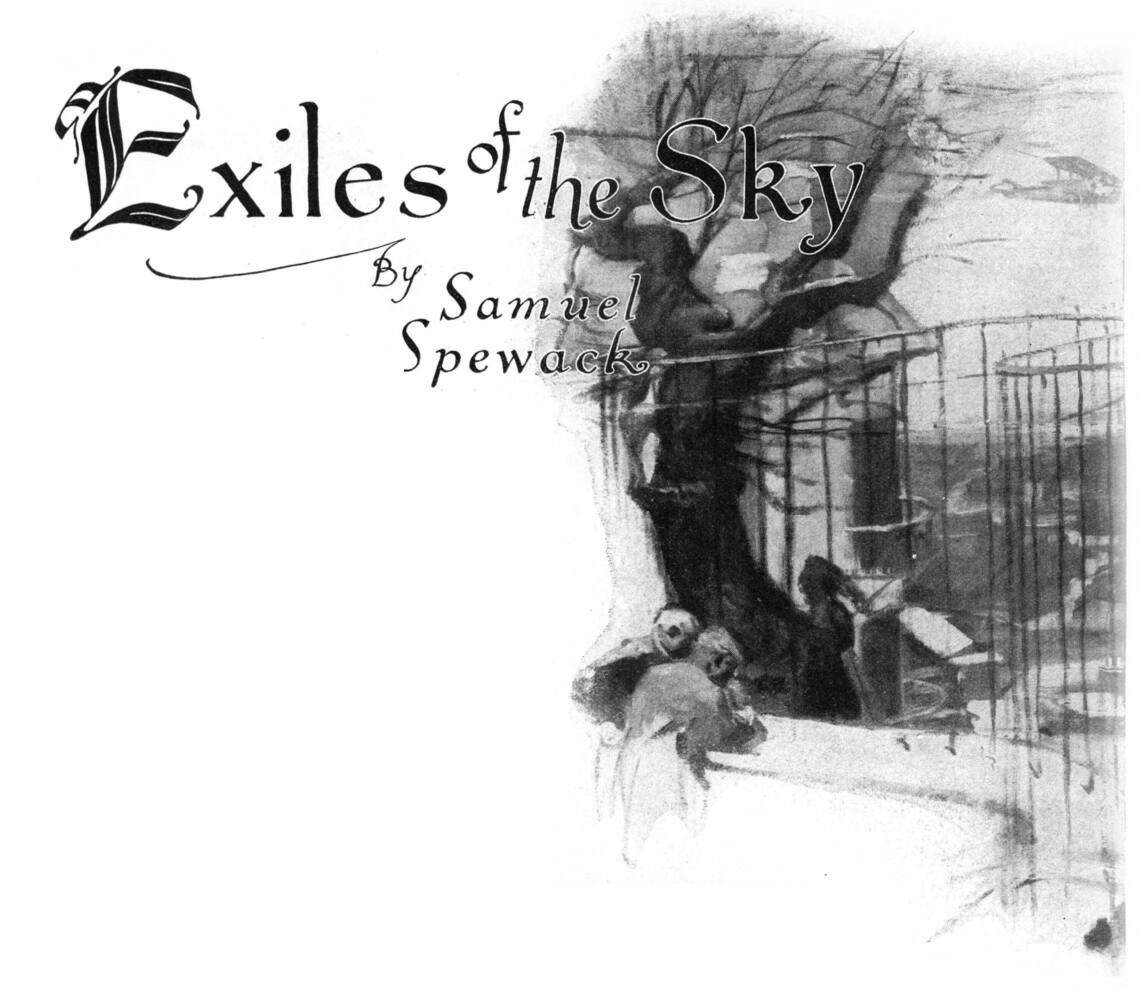
EXILES OF THE SKY
The man who writes this vivid tale of a pilot in the commercial airservice of Europe today knows the scenes of which he writes and thespirit of the people who inhabit them, for, since the war, he has beenone of the most active of all the American correspondents in Germany andRussia.
He walked unseeing into the Tiergarten. It was winter—the sunlesswinter of Berlin, when trees sway like despairing skeletons praying tothe wind for snow to cover their bones.
The man pressed the collar of his sheepskin coat closer to his throat,shivering not with cold but with an aching sense of the world’sinjustice to man—to himself. He was dazed with constant rehearsing ofthe scene that had taken place in the director’s office only half anhour ago. The scene itself had taken but a few minutes. Directors ofpassenger airplane services have very little time to waste, theirsecretaries will tell you.
It hadn’t hurt so much until the director, big-jowled and thin-lipped,had taken up the red pencil and drawn a brutal line through the name:Vladimir Uspensky.
“We have no use for pilots who crash,” the director had shouted, butthose words had not hurt.
That ruthless scrape of the red pencil through his name had hurt. Ifit had been a blade tearing through his flesh, the pain could not havebeen more intense. Why hadn’t the director put him up against the walland shot him? That’s what they did to soldiers who faltered. Butshooting was an act of mercy compared to that red line.
True, he had crashed. But he had never crashed before. Why couldn’t thedirector give him a second chance? Bookkeepers, captains of industry,doctors, editors and statesmen err, and are forgiven. And other pilotshad crashed. Why, that Westphalian pilot had had two crashes and had notbeen dismissed. If only that little cowardly merchant had notcomplained! But who would have thought that he would? Instead ofcommending him for his skill and quick wit in preventing their all beingcrushed to dust, that damned little merchant had testified, unsolicited,that the pilot had had two glasses of vodka in quick succession in theflying-field waiting-room at Reval.
The wretched man began mumbling to himself as he plunged deeper into thepark.
Yes, he had had two drinks. But a man could not get drunk on two glassesof vodka, particularly a Russian. He had crashed because the cooler hadsprung a leak. The motor had stopped. But he had glided to earth. Wasthis not proof enough that he was sober? And the plane was not evendamaged. Not even a scratch on her wings. And he had never had a crashbefore. He’d asked the director that, but the director had been too busyfinding the red pencil to answer. Well, had he?
No. Never. Never! Nobody could say that Vladimir Uspensky had ever had acrash before.
Consumed by his misery, the man looked neither to right nor left. Yes,he had had two drinks.
“And after four years of service with us, are you still unacquaintedwith our regulations?” the director had asked sarcastically.
“And dumb beast that I am, I couldn’t even answer him,” Vladimirremembered bitterly.
Yes, he had taken two drinks. He’d taken them, too, because he wascoming back to Berlin, when he longed with all his being for Moscow.
Vladimir Uspensky hated Berlin. It was such an ugly city, with a soul ascold and sterile as the Prussian soil upon which it